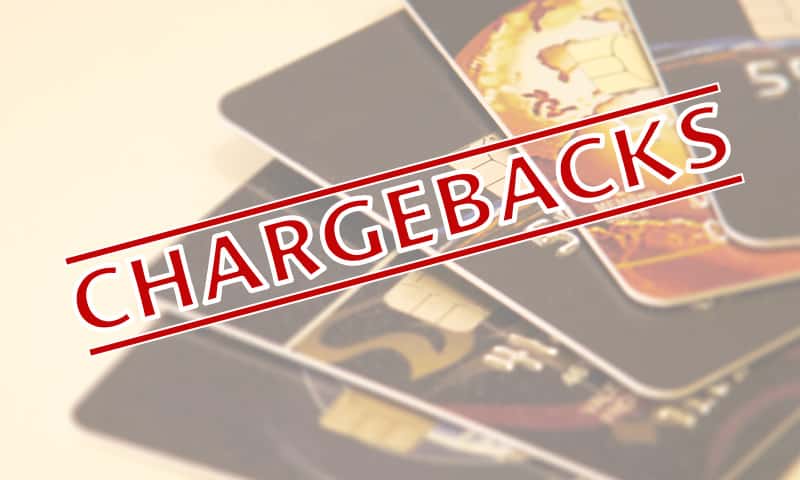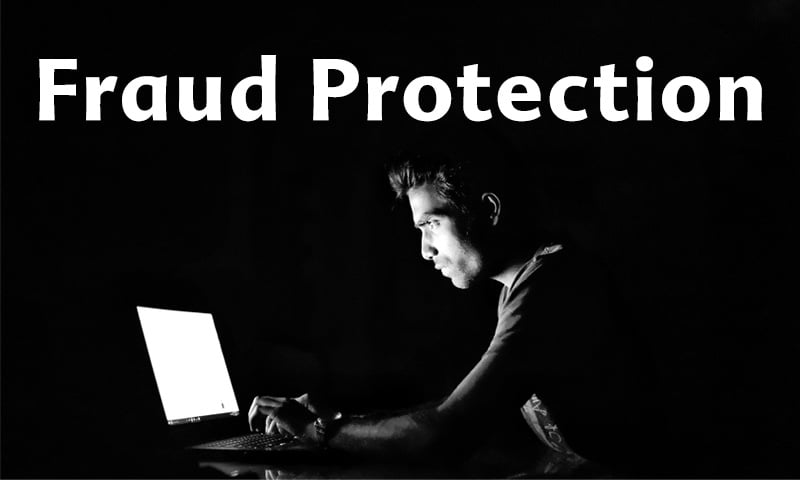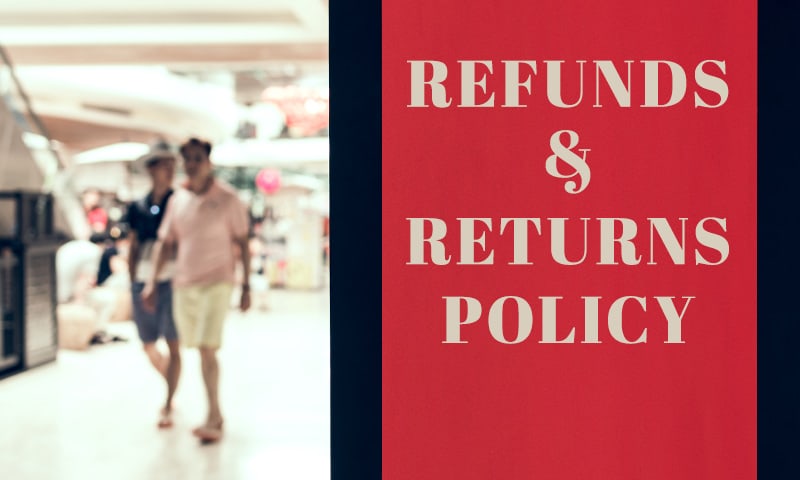
Start Preventing Chargebacks Today
With the right tools and a little knowledge, you can improve your success in stopping chargebacks before they happen. Take a look at what we can offer. Call us at (727) 873-0963 if you have any questions.
Credit Card Chargebacks
Consumer use of debit and credit cards is on the rise, especially with less people using and carrying cash. Along with this increase of credit and debit card payments are also disputed transactions also known as a chargeback. If you are not familiar with credit card chargebacks, they occur when a customer disputes a charge on their card to the bank, not the retailer from whom they purchased goods or services. Too many chargebacks can affect your business’ ability to process card payments, so it is very important to integrate your eCommerce shop with some sort of chargeback protection.
Credit Card Chargeback Protection for Merchants
If your industry or business encounters a higher rate of chargebacks than most other retailers, the acquiring banks that accept and approve credit card payments will either freeze your account that collects the funds from credit card payments or increase the credit card processing rate. There are many reasons a consumer may file a return item chargeback. There are many reason codes between all the major card brands, and while the list is too long to cover them all here, we will explain what exactly a chargeback is, the most commonly reasons for a credit card chargeback dispute transaction, chargeback prevention services, and how to respond to chargebacks.
While you may not need to be a chargeback expert, comprehending the challenge you’re up against can make it possible to improve your operational success to help you stop chargebacks in their tracks. Stay ahead of credit card chargebacks with high risk merchant accounts that offer chargeback protection for merchants but first and foremost, be sure that your company chooses a secure high risk merchant account to ensure you have the right partner to mitigate the issues associated with this type of dispute.
Customer Chargebacks
What are Some of the Most Common Reasons a Customer might Initiate a Credit Card Chargeback?
1. Fraud
What you need to know: When it comes to fraud due to credit card chargebacks there are many tools available to merchants to alleviate fraud in the online payments’ world.
- Fraud Tools: Fraud tools can help mitigate issues with a rules-based fraud prevention tool that merchants can use to screen suspicious transaction activity, helping merchants to stay one step ahead of credit card chargeback fraud.
- Verified by Visa/MC Secure Code: Both Visa and MasterCard have programs that allow you to add an additional layer of security to your sales, and potentially avoid a return item chargeback fee.
- 3D Secure: 3D Secure was created by Visa and MasterCard to add an additional layer of security for Card Not Present (CNP) and high-risk merchants.
- Gateway Tools: Utilize the standard gateway tools at your disposal to avoid an unnecessary return item chargeback. Be sure you turn on and make use of AVS (Address Verification Services) and CVV (Card Verification Value).
2. Transaction Not Recognized
What you need to know: In high risk payment processing, your payment descriptor is the merchant name, as well as other identifying details that appear on the customer’s statement when they make a purchase from you. If the customer doesn’t recognize the name that appears on their statement, it is unlikely they will know what the charge was for. To avoid disputed transactions because of credit card chargebacks, you need to be sure your descriptor reflects what the consumer will recognize and how a customer can reach you to inquire more about their transaction.
3. Incorrect Transaction Amount
What you need to know: You may run into a system error that can lead to the customer’s credit card being charged twice, which risks the potential of a return item chargeback fee. Occasionally, a customer accidentally pressed the “Purchase Now” button twice, leading to a duplicated charge. If you happen to see a duplicate order, assume that it was an error and contact the customer to confirm to help prevent them from filing a dispute. If there is a manual process, the person processing the credit card might make an error, so you want to avoid doing manual processing of orders whenever possible and be sure to state the time limit for credit card chargebacks somewhere within your return policy.
4. Not as Described or Defective Merchandise
What you need to know: You can’t make everyone happy, and that is especially true for consumers. Make sure you have a responsive customer service team with clearly defined means to be contacted i.e. phone number, email or web chat service. Customers will likely file disputes for those companies that are difficult to reach or that company has too strict of a return policy. You need guidelines for how to fight credit card chargebacks, and make sure your return policy is clearly located on your website in a way that is fair for both parties involved.
5. Services Not Provided or Merchandise Not Received
What you need to know: Start with clear expectations and a visible shipping policy on your website and keep your customers informed by emailing order status updates. Sometimes there are circumstances out of your control once the item has shipped like inclement weather that can cause a delay in shipping. Regardless, for a return item chargeback to be avoided, notify the customer of the delay and give them the option to cancel.
6. Canceled Recurring Transaction
What you need to know: If a customer requests cancellation of a recurring transaction that is billed periodically (monthly, quarterly, annually), always respond to the request and cancel the transaction immediately. If you don’t want to fall subject to credit card chargebacks, advise the customer in writing that the service, subscription, or membership has been canceled and be sure to state the effective date of cancellation and mention any prorated charges if applicable. Failure to respond to customer cancellation requests almost always leads to a chargeback.
7. Credit Not Processed
What you need to know: Always make refunds in a timely manner and do so to the same credit or debit card the consumer paid with. Failure of timely refunds can result in a return item chargeback or basic credit card chargebacks. Make sure you let your customer how long it will typically take before they see the refund. This information may seem basic to some people, but when it comes to the integrity of how your business is conducted and your customer satisfaction, it’s always best to have all your bases covered.
Knowing how to fight credit card chargebacks regarding the chargeback time limit and how to avoid this type of dispute all together can be a powerful resource. Be sure that your company chooses a secure high-risk merchant account to deflect many of these stressors and for all your payment processing needs. If you’re unsure whether or not your company has been categorized as a high risk merchant, be sure to check our industries list (insert Hyperlink for high risk industries) for a complete list of businesses and to answer your question: Do I need a High Risk Merchant Account?
Refunds Versus Credit Card Chargebacks?
Not providing a refund can cause an unwanted chargeback, despite any systems of chargeback protection for merchants, which can hurt a merchant’s processing ability. A chargeback is a refund that the merchant is forced to give, as opposed to a refund voluntarily given. If a company’s credit card chargebacks exceed 1% of their total sales, you could end up pay fines or even have your merchant account shut down completely. Once you’re in credit card chargeback trouble, applying for another merchant account becomes especially difficult, particularly for those who need a high-risk merchant account. Most payment processors will deny your application due to high chargebacks.
Other payment processing companies may take you, however, they’ll likely charge higher fees. There is also a possibility you will have to pay a reserve and you’ll be requested for a larger reserve up front. Every retailer attempts to create a refund policy that will protect each purchase and be fair for both the consumer and the company. Most payment processors prefer at least a 30-day unconditional refund policy. No merchant wishes to be taken advantage of having their product used and have the customer get all the guaranteed benefits, only to then request a refund just because consumers can dispute it. Managing refunded products can prove expensive in several ways. Your payment processing company may charge you for the effort to receive and track your returned items. Merchants often get upset with the concept of sending back products, because it’s time-consuming to pack and arrange shipping; and sometimes clients are opposed to paying the shipping charges to ship a returned item.
Some payment processors are now requiring that merchants provide refunds without getting the unused part of their merchandise back. The idea is to take a long-term approach, which means taking some losses along the way. The goal is to assure that customers don’t contact their bank card company and initiate credit card chargebacks. Regardless, credit card chargebacks are expensive, time-consuming, and resource draining. They’re difficult for all merchants, but smaller retailers can especially struggle if they do not have the right processes in place to handle them.
Can a Refund Policy Prevent Credit Card Chargebacks?
Believe it or not, a strict return policy can hurt your business more than a more flexible one. Dissatisfied customers disputing charges due to fraud will not accept a no from you if they are motivated and angry enough to appeal to their credit card provider for a return on their funds. When the banks need to refund your customers instead of you, you end up paying more in higher processing rates or losing business because the bank shutdown your merchant account. If you are looking for more flexible refund policy or return solutions here are a few things you can do:
- Set up a Solid Products Page.
When listing your products, make sure descriptions are accurate and that you have clear and accurate imagery depicting the product at all angles. Try to use images of the actual product rather than stock images. Being thorough with your product presentation will prevent users from disputing a charge due to misrepresentation, counterfeit merchandise, or not as described/defective merchandise claims, which in turn prevents a chargeback. - Simplified Cancellation Policy.
If a customer must cancel their recurring payment, or their one-time order, make sure they have a clear idea of how to do that on your site. If you add terms like early cancellation fees, this will only cause the customer to go directly to their card provider and chargeback the purchase. - Offer Returns.
No one wants to lose a sale, and your customers may be willing to give your business a chance to purchase other items instead of just demanding their money back for the initial item or service. You could offer to accept a return for store credit or for an exchange for a similarly valued product. The idea is to keep that sale on your books and avoid credit card chargebacks and to impart satisfaction and trust on to your customers. - Use Plain and Simple Language.
Your customers are less likely to file chargebacks if they can clearly understand your return/refund policy. If you accept returns, make sure you indicate a time period when they will be received. If they will only receive a store credit for their return, make sure that is clearly outlined in your policy. Also, outline any additional potential charges that may be incurred by the customer such as return shipping costs or a restocking fee. - Be clear on “All Sales Final” Products.
If you are unable to accept goods back due to seasonality or other specific circumstances, you need to indicate that on your product page. If the customer knows that the sale is final and accepts that condition, they will consider the purchase more and be less likely to want to return the product.
Credit Card Chargebacks Myths and Realities
The following is a breakdown of some chargeback myths and realities:
MYTH: You can’t win a chargeback dispute transaction.
REALITY: Implementing a seller’s expertise can not only ease the time and resources needed to dispute credit card chargebacks and reclaim lost revenue, but a few are able to provide internet recovery rates to boost your bottom line.
MYTH: Winning a chargeback dispute transaction will decrease your monthly credit card chargebacks ratio with your acquiring bank.
REALITY: Credit card chargebacks aren’t reduced if the dispute is won; they count against your chargeback ratio regardless of the outcome.
MYTH: It’s not possible to win a disputed transaction chargeback report if you don’t have a signed receipt.
REALITY: Signatures on receipt for a sale that has been made can include a number of items, such as photographs or emails proving a link between the individual receiving the merchandise as well as the cardholder, or demonstrating that the cardholder disputing the trade is in possession of the merchandise; which will definitely help your dispute of the credit card chargeback.
MYTH: You can’t lower your chargeback ratio without reducing sales.
REALITY: There are lots of steps you can take to decrease your credit card chargeback ratio without negatively impacting sales. A common method involves requiring customers to register their cardholder data by validating their info. Cardholders answer a series of questions only they would have the ability to answer, as well as setup a password. This feature allows you to confirm return traffic in an easy, non-intrusive manner while allowing you to maintain legitimate sales and fight credit card chargebacks.
MYTH: You cannot battle a PayPal dispute transaction.
REALITY: PayPal provides chargeback protection for merchants from credit card chargebacks for retailers who meet the eligibility conditions according to Unauthorized Transactions or Item Not Received. The scope protects sellers for the whole amount of payment, and waives the credit card chargeback fee, if applicable.
Chargeback Prevention Services
Why Seek Chargeback Prevention Services with Double Helix Solutions?
The truth is, credit card chargebacks occur for a variety of reasons, but one thing is for certain: credit card chargebacks account for revenue loss. While you do not need to be a chargeback expert, understanding the challenge you’re faced with can make it possible to improve your operational success. We’ve got you covered on all the ins and outs of payment processing questions, concerns, and merchant accounts, we also care about the longevity and health of your merchant account. This will be pivotal to the overall success of your business, which is why keeping a pulse on the chargebacks is imperative. Implement some of these tips and you’re sure to see a reduction in credit card chargebacks. However, if you are in a situation where you are paying high rates for credit card processing, or a payment processor has shut down your high-risk merchant account and are holding your funds, get in touch with us about chargeback strategies and solutions. Click here to contact us.








